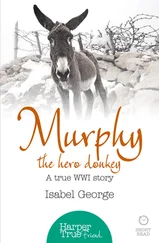George Eggleston - The Master of Warlock - A Virginia War Story
Здесь есть возможность читать онлайн «George Eggleston - The Master of Warlock - A Virginia War Story» — ознакомительный отрывок электронной книги совершенно бесплатно, а после прочтения отрывка купить полную версию. В некоторых случаях можно слушать аудио, скачать через торрент в формате fb2 и присутствует краткое содержание. Жанр: foreign_prose, на английском языке. Описание произведения, (предисловие) а так же отзывы посетителей доступны на портале библиотеки ЛибКат.
- Название:The Master of Warlock: A Virginia War Story
- Автор:
- Жанр:
- Год:неизвестен
- ISBN:нет данных
- Рейтинг книги:3 / 5. Голосов: 1
-
Избранное:Добавить в избранное
- Отзывы:
-
Ваша оценка:
- 60
- 1
- 2
- 3
- 4
- 5
The Master of Warlock: A Virginia War Story: краткое содержание, описание и аннотация
Предлагаем к чтению аннотацию, описание, краткое содержание или предисловие (зависит от того, что написал сам автор книги «The Master of Warlock: A Virginia War Story»). Если вы не нашли необходимую информацию о книге — напишите в комментариях, мы постараемся отыскать её.
The Master of Warlock: A Virginia War Story — читать онлайн ознакомительный отрывок
Ниже представлен текст книги, разбитый по страницам. Система сохранения места последней прочитанной страницы, позволяет с удобством читать онлайн бесплатно книгу «The Master of Warlock: A Virginia War Story», без необходимости каждый раз заново искать на чём Вы остановились. Поставьте закладку, и сможете в любой момент перейти на страницу, на которой закончили чтение.
Интервал:
Закладка:
But when they saw her dismount from Baillie Pegram's mare, they were well-nigh speechless with horror at her depravity. The deliverance that had been so carefully prepared for her chastening no longer met the requirements of the case. A new and far severer rebuke must be extemporised, and the necessity of that was an additional offence on the part of the young woman who had forced it upon them. They were not accustomed to speak extemporaneously on any subject of importance. To do so involved the danger of saying too much, or saying it less effectively than they wished, or – worse still – leaving unsaid things that they very much wished to say. In response to their horrified questionings, Agatha made the simplest and most direct statement possible.
"The morning was fine, and I wanted to ride. I rode as far as Dogwood Branch. There my poor horse – the one that my grandfather sent down for me to ride while here – met with a mishap. His foot went through a hole in the bridge, and in his struggle to extricate it, he broke his leg. Mr. Pegram came along and released the poor beastie's foot, but it was too late. So he insisted upon my taking his mare, and showed me that I couldn't refuse. He sent his servant to ride on a mule behind me in case I should have trouble with his only partially broken mare. He promised to put my poor horse out of his misery. There. That's all there is to tell."
The little speech was made in a tone and with a manner that suggested difficult self-restraint. When it was ended the two good aunts sat for a full minute looking at the girl with eyes that were eloquent of reproach – a reproach that for the moment could find no fit words for its expression. At last the torrent came – not with a rushing violence of speech, but with a steady, overwhelming flow. The girl stood still, seemingly impassive.
"Will you not be seated?" presently asked Aunt Sarah.
"If you don't mind, I prefer to stand," she answered, in the gentlest, most submissive tone imaginable, for Agatha – angry and outraged – was determined to maintain her self-control to the end. Her gentle submissiveness of seeming deceived her censors to their undoing. Satisfied that they might rebuke her to their hearts' content, they proceeded, adding one word of bitter reproach and condemnation to another, and waxing steadily stronger in their righteous wrath. Still the girl stood like a soldier under a fire which he is forbidden to return. Still she controlled her countenance and restrained herself from speech. Only a slight flushing of the face, and now and then a tremor of the lip, gave indication of emotion of any kind.
Not until the storm had completely expended its wrath upon her head did Agatha Ronald open her lips. Then she spoke as Agatha Ronald:
"Will you please order my carriage to be ready for me on Saturday morning, Aunt Sarah? My maid is too ill to travel to-morrow or the next day. But by Saturday morning she will be well enough, and I shall begin my journey to Willoughby at nine o'clock, if you will kindly order a cup of coffee served half an hour before the usual breakfast-time on Saturday."
She departed instantly from the room, giving no time or opportunity for reply or remonstrance.
"Perhaps we have spoken too severely, Jane," said Aunt Sarah.
Perhaps they had. At any rate, it had been Agatha's purpose to remain a full month longer at The Oaks before beginning the long homeward carriage journey which alone Colonel Archer permitted to his grandchild. Railroads were new in those days, and Colonel Archer had not reconciled himself to them.
"They are convenient for carrying freight," he said, "but a young lady isn't freight. She should travel in her own carriage."
Later in the day Agatha reappeared, as gentle and smiling as usual, and as attentive as ever to the comfort of her aunts. Her manner was perfect in its docility, for she had decided that so long as she should remain under their roof, it was her duty to herself, and incidentally to her aunts, to minister in every way she could to their pleasure, and to obey their slightest indicated wishes implicitly. They were misled somewhat by her manner, which they construed to be an indication of submission.
"You will surely not think of leaving us on Saturday, dear, now that you have thought the matter over calmly," said Aunt Sarah; "and perhaps we spoke too severely this morning. But you will overlook that, I am sure, in view of the concern we naturally feel for your bringing up."
A bitter and convincing speech was on the girl's lips ready for delivery, – a speech in which she should declare her independence, and assert her right as a woman fully grown to determine her conduct for herself within the limits of perfect innocence, – but she drove it back into her heart, and restrained her utterance to the single sentence:
"I shall begin my journey on Saturday morning."
Agatha Ronald was in revolt against an authority which she deemed oppressive, and such revolt was natural enough on the part of a daughter of Virginia whose ancestry included three signers of the Declaration of Independence, and at least half a dozen fighting soldiers of the Revolution. It was in her blood to resent and resist injustice and to defy the authority that decreed injustice. But after the fashion of those revolutionary ancestors of hers, she would do everything with due attention to "a decent respect for the opinions of mankind." She had decided to quit The Oaks because she could not and would not longer submit to a discipline which she felt to be arbitrary, unreasonable, and unjust. But she was determined to be as gentle and as gentlewomanly as possible in the manner of her leaving. It was her fixed purpose never again to visit that plantation – her birthplace – until she should be summoned thither to take possession as its sole inheritor, but she let slip no hint of this determination to distress her aunts, who, after all, meant only kindness to her by their severity.
"I'll say nothing about it," she resolved. "I'll just go back to Chummie. He understands me, and I'll never leave him again."
V
At the oaks
When Baillie Pegram rode into The Oaks grounds on that third Friday of April, 1861, the first person he encountered was none other than Agatha. She was gowned all in white, except that she had tied a cherry-coloured ribbon about her neck. She was wholly unbonneted, and was armed with a little gardening implement – hoe on one side and miniature rake on the other. She was busy over a flower-bed, and the young man, rounding a curve in the shrubbery, came upon her, to the complete surprise of both.
The situation might have been embarrassing but for the ease and perfect self-possession with which the girl accepted it. She greeted her visitor, to his astonishment, without any of the hauteur that had marked her demeanour on the occasion of their last previous meeting. Here at The Oaks she felt herself under the entirely adequate protection of her aunts. She had therefore no occasion to stand upon the defensive. Out there at the bridge she had been herself solely responsible for her conduct, and dependent upon herself for the maintenance of her dignity. Here Mr. Baillie Pegram was the guest of her people, while out there he had been a person casually and unwillingly encountered, and not on any account to be permitted any liberty of intercourse. Besides all these conclusive differences of circumstance, there was the additional fact that Agatha was in revolt against authority, and very strongly disposed to maintain her perfect freedom of innocent action. So she gave her visitor a garden-gloved hand as he dismounted, and slowly walked with him toward the house.
"I attended an opera once," she chattered, "when I was a very little girl. I remember that I thought the basso a porpoise, and the tenor a conceited popinjay, and the prima donna a fat woman, but I fell completely in love with the haymakers in the chorus. So whenever I go gardening I find myself instinctively trying to make myself look as like them as I can. That, I suppose, is why I tied a red ribbon about my neck this morning."
Читать дальшеИнтервал:
Закладка:
Похожие книги на «The Master of Warlock: A Virginia War Story»
Представляем Вашему вниманию похожие книги на «The Master of Warlock: A Virginia War Story» списком для выбора. Мы отобрали схожую по названию и смыслу литературу в надежде предоставить читателям больше вариантов отыскать новые, интересные, ещё непрочитанные произведения.
Обсуждение, отзывы о книге «The Master of Warlock: A Virginia War Story» и просто собственные мнения читателей. Оставьте ваши комментарии, напишите, что Вы думаете о произведении, его смысле или главных героях. Укажите что конкретно понравилось, а что нет, и почему Вы так считаете.












